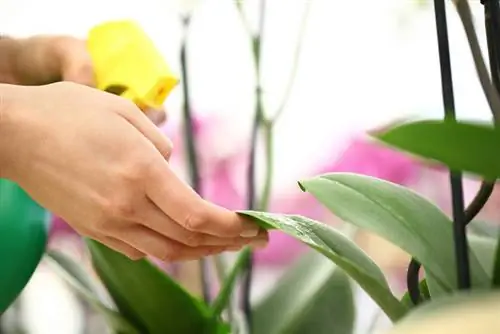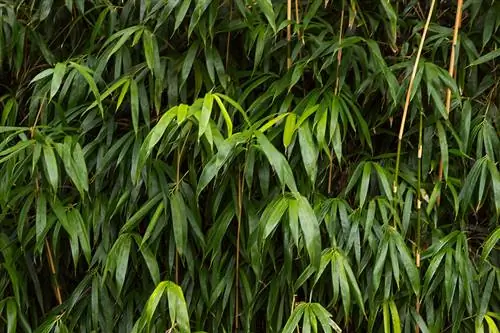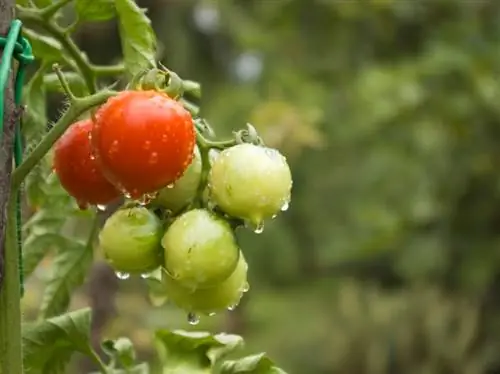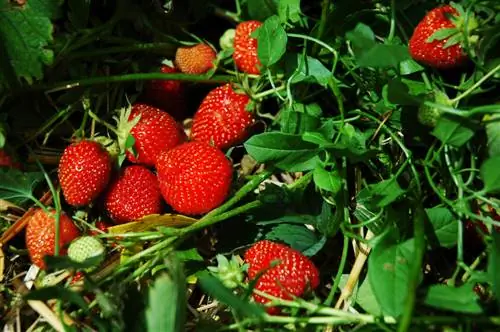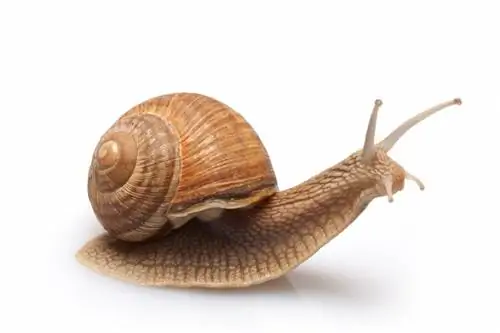- Author admin leonars@hobbygardeners.com.
- Public 2023-12-16 16:46.
- Last modified 2025-01-23 11:20.
If orchids are attacked by parasites, growth and flowering are at stake. The pests remove the vital juice from the leaves and bring pathogens with them. You can find out here how you can fight the cunning parasites using natural means.
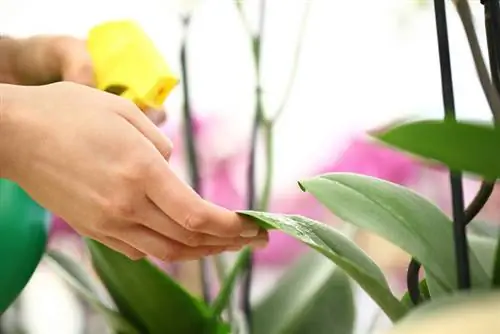
How to rid orchids of parasites?
To rid orchids of parasites such as lice, isolate the infected plant, shower the leaves vigorously and wipe them with a cloth soaked in alcohol. Additionally, you can use a soft soap solution or diatomaceous earth to finally combat the pests.
How to get rid of parasites on orchids
Lice of all kinds are among the most common parasites that cause problems for your orchids. Out of the blue they spread explosively on the leaves and shoots. The parasites pierce the leaf veins with their mouthparts and extract the lifeblood of the plant. You can put a stop to the pests with a sophisticated strategy and effective home remedies. This is how it works:
- Immediately isolate an orchid infected with parasites from other houseplants
- After putting the root ball in a bag, rinse off the leaves as vigorously as possible
- Wipe the tops and bottoms of the leaves with an alcohol-soaked cloth after each shower
You can finally put an end to the parasites with a mixture of 15 grams of soft soap, 1 tablespoon of spirit and 1 liter of water. Spray the solution on the orchid every 2 days until lice are no longer visible.
Take action against parasites with diatomaceous earth
Finely ground sedimentary rock works excellently against all kinds of parasites. If water showers and the soft soap solution do not achieve the desired result, stop the plague with the help of diatomaceous earth; also known as diatomaceous earth or mountain flour. The purely natural preparation consists of fossil algae deposits. Applied with a brush or powder syringe, diatomaceous earth dries out the lice so that they suffer from dehydration.
Fighting agents based on fossil plankton are in the same vein. Completely free of poison or annoying smells, your orchids will be free of all parasites in no time.
Tip
Orchids are sometimes mistakenly referred to as parasites. This fallacy is based on their unconventional growth as epiphytes of trees in the rainforest. In reality, the epiphytes simply hold on to the branches with their roots. Orchids meet their water and nutrient needs by their aerial roots catching the rain.

